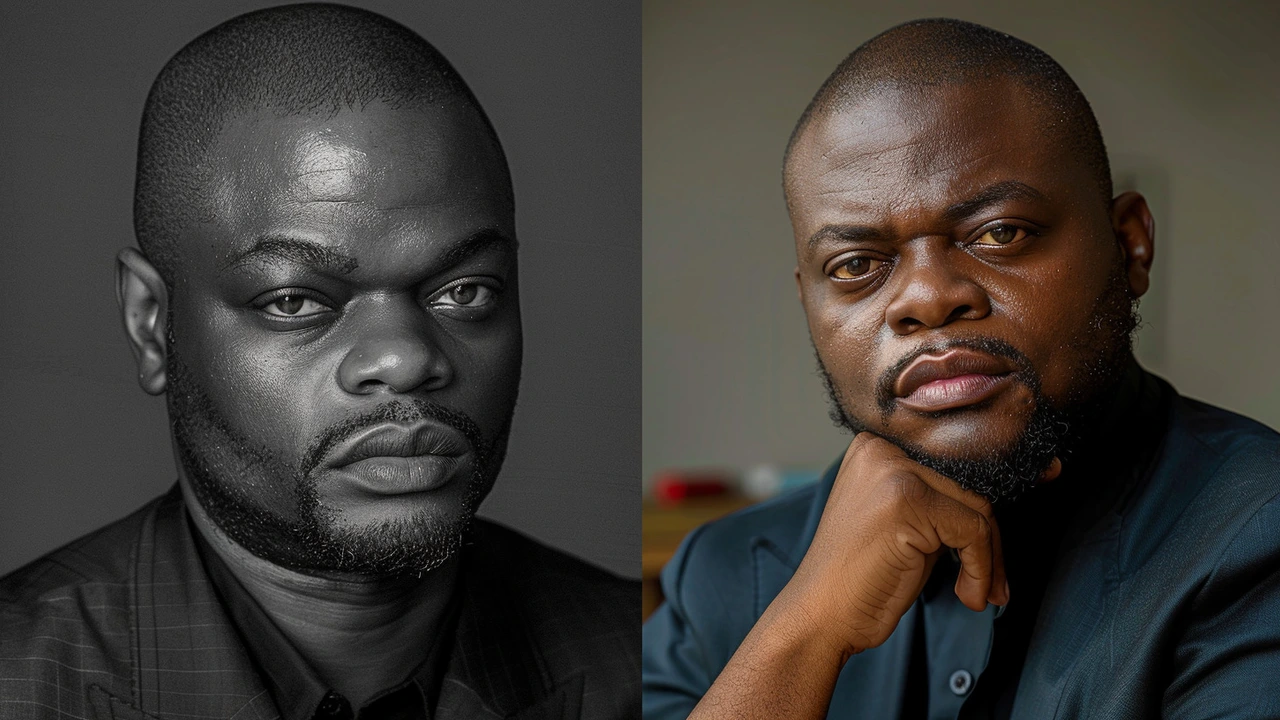Nigerian Artist Kehinde Wiley Refutes Sexual Assault Allegations, Calling Relationship Consensual
20 May, 2024Nigerian Artist Kehinde Wiley Clears the Air Over Sexual Assault Allegations
In a statement that has stirred the art world, Nigerian artist Kehinde Wiley has addressed sexual assault allegations leveled against him by Ghanaian artist Joseph Awuah-Darko. Wiley, known for his striking portraits that challenge conventional narratives, asserts that the relationship between the two was both brief and consensual. He claims the accusations are unfounded and are part of a broader attempt to damage his reputation.
Wiley’s reaction to the claims was one of both sorrow and anger. He expressed profound dismay at the accusations, calling them an insult to those who have genuinely suffered from sexual abuse. According to Wiley, revisiting their past relationship at this juncture serves no purpose other than to malign his character. He emphasized that his connection with Awuah-Darko was not only mutual but also ended on amicable terms.
Evidence to Support Wiley’s Claims
To substantiate his claims, Wiley has brought forth a series of text messages and Instagram posts exchanged between him and Awuah-Darko. These, according to Wiley, paint a picture of a consensual and brief relationship. The communications reportedly illustrate friendly interactions and mutual respect that Wiley argues are inconsistent with any form of coercion or assault.
He believes the context provided by these pieces of evidence will demonstrate that the accusations are without merit. Wiley has called for privacy as he navigates this troubling period, asking the public and media to respect both his and Awuah-Darko's personal space.
The Impact on the Art Community
The allegations and Wiley’s subsequent response have had a resounding impact within the arts community. Wiley, celebrated globally for his distinctive art style, which often features people of African descent in ornate, powerful portrayals, finds himself at the intersection of a serious societal issue: the intersection of celebrity, reputation, and accountability. This case underscores the challenges public figures face when allegations arise, and how swiftly such claims can alter public perception.
For Awuah-Darko, known for his multifaceted contributions to art, music, and social entrepreneurship, bringing forth these allegations marks a significant moment in his history. While the truth of the matter remains to be fully unveiled, the conversation it has sparked is vital. It highlights the need for proper channels and platforms for addressing such serious claims while also ensuring due process is followed.
Wiley’s Appeal for Privacy
In addition to defending himself publicly, Wiley has made a heartfelt appeal for privacy. He emphasized the strain that the allegations have placed not just on his professional life but also on his personal well-being. He thanked those who have stood by him during this challenging period and expressed hope that the situation will be resolved fairly. Seeking to clear his name, Wiley reiterated his belief in the importance of truth and justice.
Reflecting on the broader implications of the allegations, Wiley mentioned that he hopes Awuah-Darko finds the support and help he might need. He did not specify what kind of help he was referring to but indicated it was important for Joseph during this period.
The Need for a Balanced Perspective
This case highlights the necessity for a balanced approach to accusations of this nature. While it is critical to take allegations of sexual misconduct seriously, it is equally important to ensure that individuals accused have the opportunity to defend themselves. Public opinion can be swift, and careers and lives can be irreparably damaged by premature judgments.
As this case unfolds, it serves as a reminder of the complexities inherent in addressing accusations of a personal nature, especially when they involve public figures. Both Wiley and Awuah-Darko have their careers, well-being, and reputations hinging on the outcome of these allegations. The truth, in its entirety, will possibly only come to the forefront with the passage of time and thorough investigation.
This evolving situation underscores the importance of patience, empathy, and a nuanced understanding of human relationships. It reminds us that, while seeking justice for victims is paramount, protecting the innocent from unfounded accusations is equally critical. Both Wiley and Awuah-Darko stand at a delicate crossroads, one where clarity, fairness, and dignity must guide the way forward.
Conclusion
In closing, Kehinde Wiley’s rebuttal of the accusations places a spotlight on the delicate nature of handling allegations of such serious misconduct. His insistence on the consensual nature of the relationship with Joseph Awuah-Darko and the evidence presented aim to clear his name. As the story develops, one can only hope that truth and justice prevail, ensuring that the real victims of abuse are honored and that reputations are preserved where unjust tarnishing has occurred.

 by
by